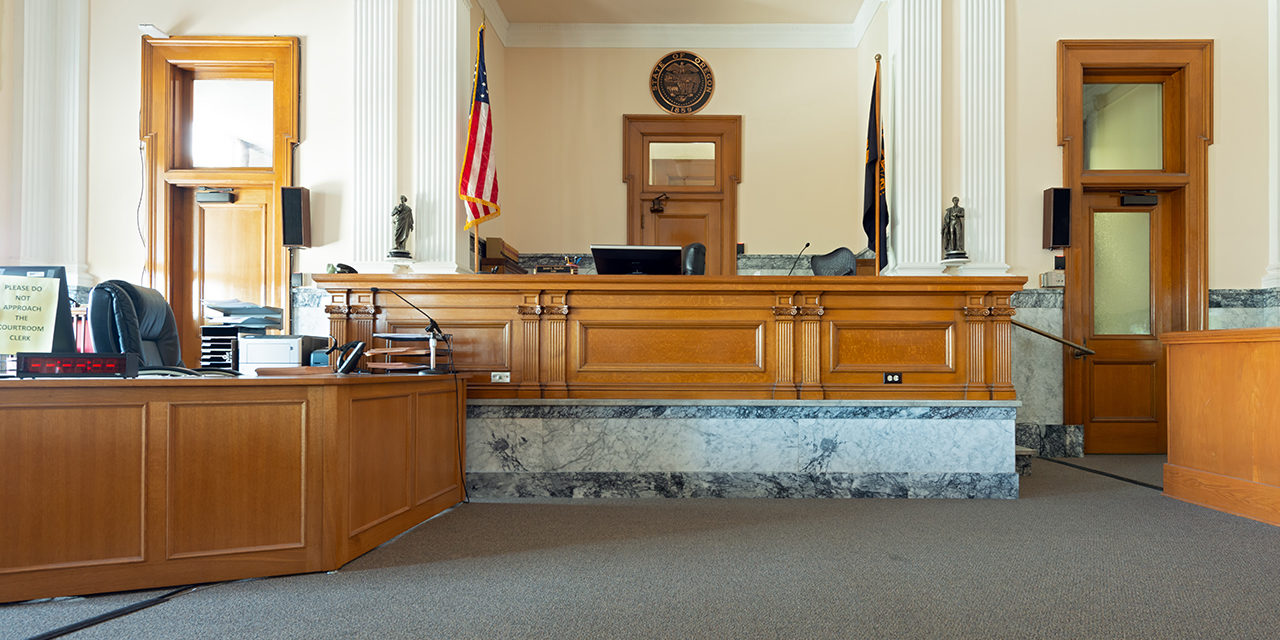Prayers that begin a courtroom session are part of an “abundant history and tradition of courtroom prayer” in America, and do not violate the First Amendment’s Establishment Clause, the 5th U.S. Circuit Court of Appeals has ruled.
Judge Wayne Mack is a Texas Justice of the Peace who doubles as the county coroner. He established a volunteer chaplaincy program to assist with counseling grieving friends and relatives at the crime scenes he investigated. He also permits those chaplains – who represent a variety of faiths – to offer invocations or wise words at the opening of his courtroom proceedings. Before doing so, however, his bailiff notifies those in attendance that they do not have to participate and can in fact leave the courtroom until the ceremony – which includes the Pledge of Allegiance – is over.
Judge Mack’s troubles began in 2014, when the secularist organization, Freedom From Religion Foundation (FFRF), filed a complaint against the judge with the Texas State Commission on Judicial Conduct. When the commission chose to issue a “Letter of Caution” to Mack but not discipline him further, FFRF filed a lawsuit in federal court.
That initial lawsuit was dismissed. So FFRF re-tooled its complaint and filed another lawsuit, this time obtaining an injunction against the courtroom invocations. And the judicial commission decided to re-launch another investigation of Judge Mack, potentially opening him up to disciplinary action.
But Judge Mack appealed to the 5th Circuit, and in conjunction with the appeal, asked the appellate court to issue a “stay” of the lower court’s ruling – a temporary pause – while Judge Mack argued his case to the judges of that appeals court.
The 5th Circuit recently granted the stay, ruling that Judge Mack was likely to prevail on his constitutional arguments when the case was fully briefed and argued.
While pointing out that the FFRF lawsuit was filled with procedural problems that the lower district court should have caught, but didn’t, the 5th Circuit also noted that the U.S. Supreme Court has consistently, and even recently, affirmed invocations at government proceedings that have traditionally been practiced throughout our nation’s history.
“The Supreme Court has held that our Nation’s history and tradition allow legislatures to use tax dollars to pay for chaplains who perform sectarian prayers before sessions. See Marsh v. Chambers, 463 U.S. 783 (1983),” the 5th Circuit opinion states. “If anything, Judge Mack’s chaplaincy program raises fewer questions under the Establishment Clause because it uses zero tax dollars and operates on a volunteer basis. And the Supreme Court recently reaffirmed Marsh in upholding a legislature’s unpaid, volunteer chaplaincy program comprised almost exclusively of Christians.”
The 5th Circuit opinion also noted it was the practice of America’s judges, including John Jay, the very first Chief Justice of the United States, to affirm and welcome the practice in their courtrooms.
This was the second time the 5th Circuit has issued a stay in Judge Mack’s favor. You can sense from the appellate judges’ ruling their frustration at how long this case has survived with so little legal foundation for FFRF’s claims. They leave little doubt as to what a final ruling will be after the case is fully briefed and argued.
Judge Mack is represented in this case by attorneys at First Liberty Institute.
“Judge Mack is grateful that the Fifth Circuit allowed him to continue following our nation’s long history and tradition of opening court proceedings with prayer,” Justin Butterfield, Deputy General Counsel to First Liberty, said in a press release. “We agree with the Fifth Circuit’s conclusion that prohibiting the prayers was wrong. It’s time for the Freedom From Religion Foundation and the State Commission on Judicial Conduct to end their harassment of Judge Mack.”
We will continue to follow this case and bring you any updates as necessary.
The case is Freedom From Religion Foundation v. Mack.
Photo from Shutterstock






